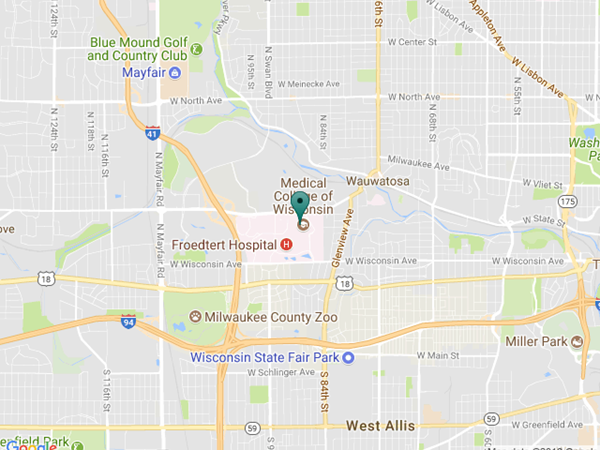Program Credit Requirements
The curriculum consists of eight required biostatistics courses which have been identified as an essential knowledge base for all students in the program. Also required, is an Ethics and Integrity in Science course. The capstone project course can be taken throughout multiple semesters but at least 3 credit hours are required for graduation. The program allows for students to choose two or more elective courses which best reflect their personal interests. Students may pursue the degree on a full-time or part-time basis
REQUIRED COURSES
BIOE 10222 Ethics and Integrity in Science (1 credit)
This course provides the basis for understanding the ethical issues related to basic scientific and medical research, including animal and human subject research, fraud, and misconduct, and governmental, institutional, and researcher responsibilities. Bioethics 10222 is offered during the spring and summer terms only.
BIOS 04221 Biomedical Applications and Consulting (3 credits)
Prerequisites: 04231/04232 Statistical Models and Methods I & II
Theory of consulting, communication, and statistical techniques most often used in consulting and biomedical applications, practical experience in the real consulting setting and writing statistical reports.
BIOS 04224 Biostatistical Computing (3 credits)
Prerequisites: 04231 Statistical Models and Methods I or concurrent registration
This course will cover the details of manipulating and transforming data required for statistical analysis. Topics include reshaping the data from a per-case to a per-event within a case and vice-versa. It will also cover the techniques necessary to write functions and macros in both SAS and R for developing new/modified data analysis methods. How to use R packages and C/C++ codes in R will also be covered. The LaTeX document production system is also introduced.
BIOS 04231 Statistical Models and Methods I (3 credits)
Prerequisite: Three semesters of calculus and one semester of linear algebra
This course will cover statistical techniques for basic statistics. Topics include one-sample/two- sample tests, analyses for count data and contingency tables, basic nonparametric methods including sign, rank-sum and signed-rank tests, simple linear regression model and inference, checking model assumptions, model diagnostics, correlation analysis, one-way analysis of variance, Kruskal-Wallis one-way ANOVA, simple logistic regression, and weighted linear regression. SAS/R will be used throughout the course.
BIOS 04232 Statistical Models and Methods II (3 credits)
Prerequisite: 04231 Statistical Models and Methods I
Factorial, nested, split-plot and repeated measures designs, multiple regression and variable selection, multiple comparisons, logistic regression, discriminant analysis, principal components and factor analysis, rates and proportions, introduction to survival analysis.
BIOS 04233 Introduction to Statistical and Machine Learning (3 credits)
Prerequisite: 04232 Statistical Models and Methods II
This course will provide an introduction to statistical learning. Core topics include variable selection, penalized linear regression such as lasso, dimension reduction including principal component analysis, flexible regression techniques including kernel smoothing/smoothing splines/generalized additive models/regression trees, support vector machine, clustering, and random forests. Other topics that can be covered include but are not limited to ridge regression, group lasso, fused lasso, adaptive lasso, SCAD, Bayesian lasso, Bayesian group lasso, Bayesian CART, BART, neural network, feature screening, graphical models, and quantile regression.
BIOS 24150 Bioinformatics in Omics Analysis (3 credits)
Prerequisites: 04231 Statistical Models and Methods I and Biostatistical Computing, or consent of instructor
The course aims to introduce modern statistical and computational methods in high- throughput omics data analysis. The first half of the course focuses on fundamental statistical and computational methods applicable in different types of high-throughput omics data. The second half covers selected important topics in bioinformatics and aims to give students a systematic view of the omics data analysis. The goals of the course include: (1) to motivate students from quantitative fields into omics research (2) to familiarize students from biological fields with a deeper understanding of statistical methods (3) to promote inter-disciplinary collaboration atmosphere in class. Students are required to have a basic statistical training (i.e., elementary statistics courses, basic calculus, and linear algebra) and basic programming proficiency (R programming is required for homework and the final project).
BIOS 24160 Concepts in Probability and Statistics (3 credits)
Prerequisites: Calculus I and II
The course is designed for graduate students who have a background in statistics but would benefit from a review of the basic concepts in probability and statistics. It focuses on the properties of random variables including distributions, expectations, and variability measures. Topics in inferential statistics covered in this course include estimation, hypotheses testing methods for categorical data tabulation and analysis. It also includes an overview of statistical techniques based on simulations and resampling. Key features of Bayesian analysis will be covered as well. After completion of the course, students should be well prepared for taking more advanced courses in statistics, both theoretical and applied.
BIOS 24297 Capstone Project (1-3 credits)
Prerequisites: 04232 Statistical Models and Methods II
The course is the culmination of the MA program in Biostatistics. Students will complete a project integrating their statistical analysis, data science, and application domain knowledge. The project results in a written report and presentation which will improve students' ability to communicate effectively about statistics and data science in written and oral form using both technical and nontechnical language. In addition, the project will enable students to expand their professional portfolio of coding samples, written reports, and presentations.









